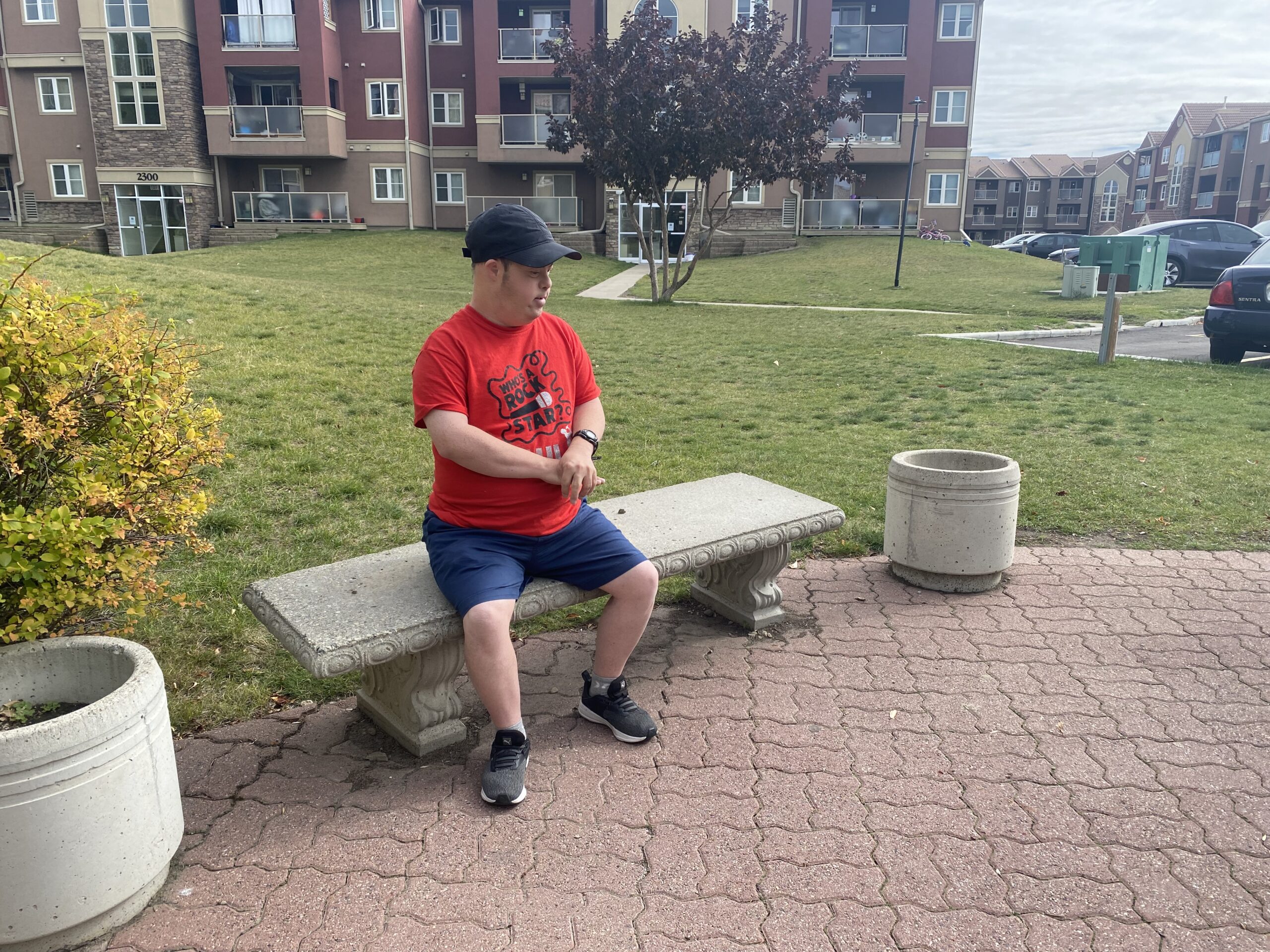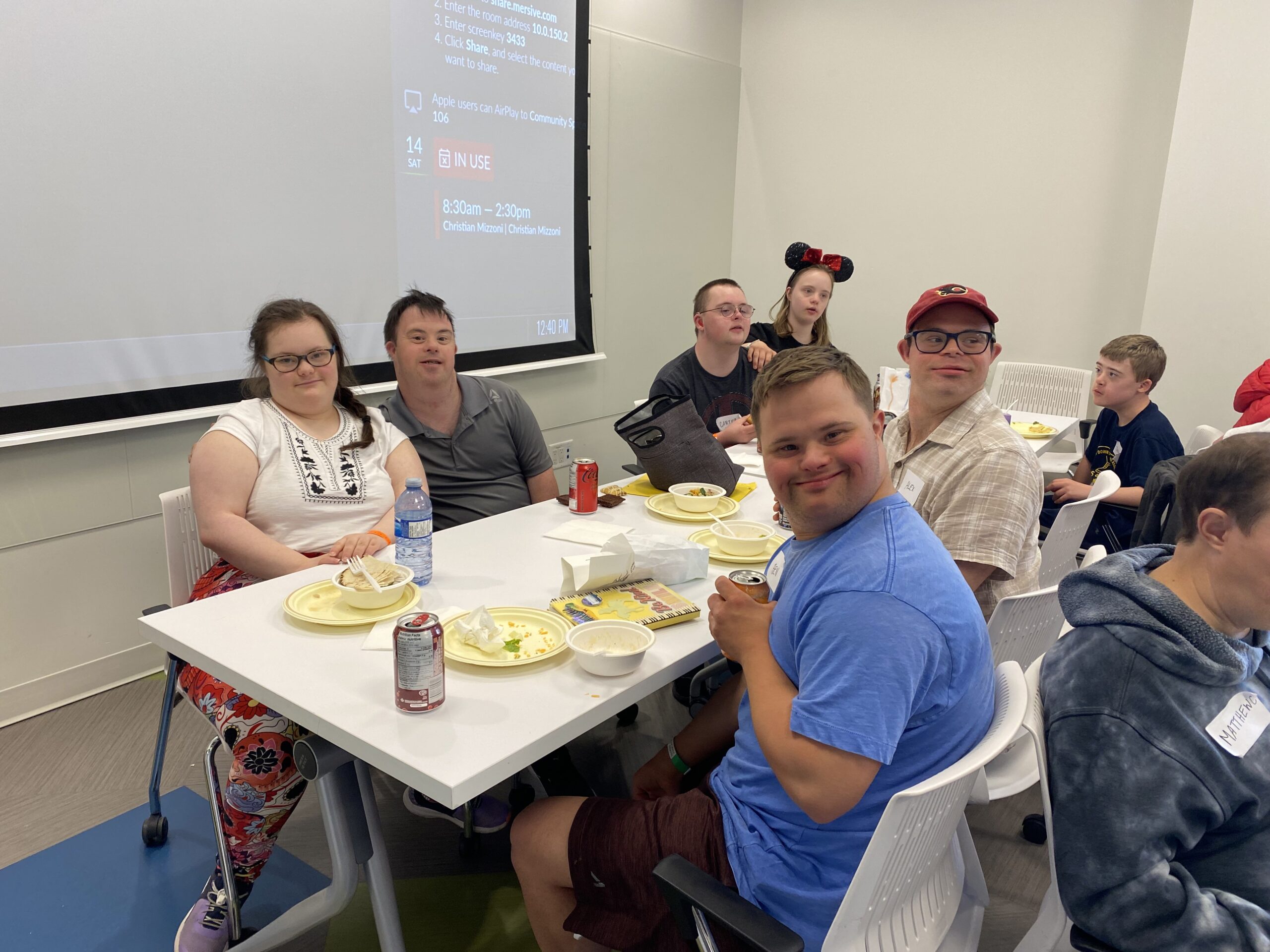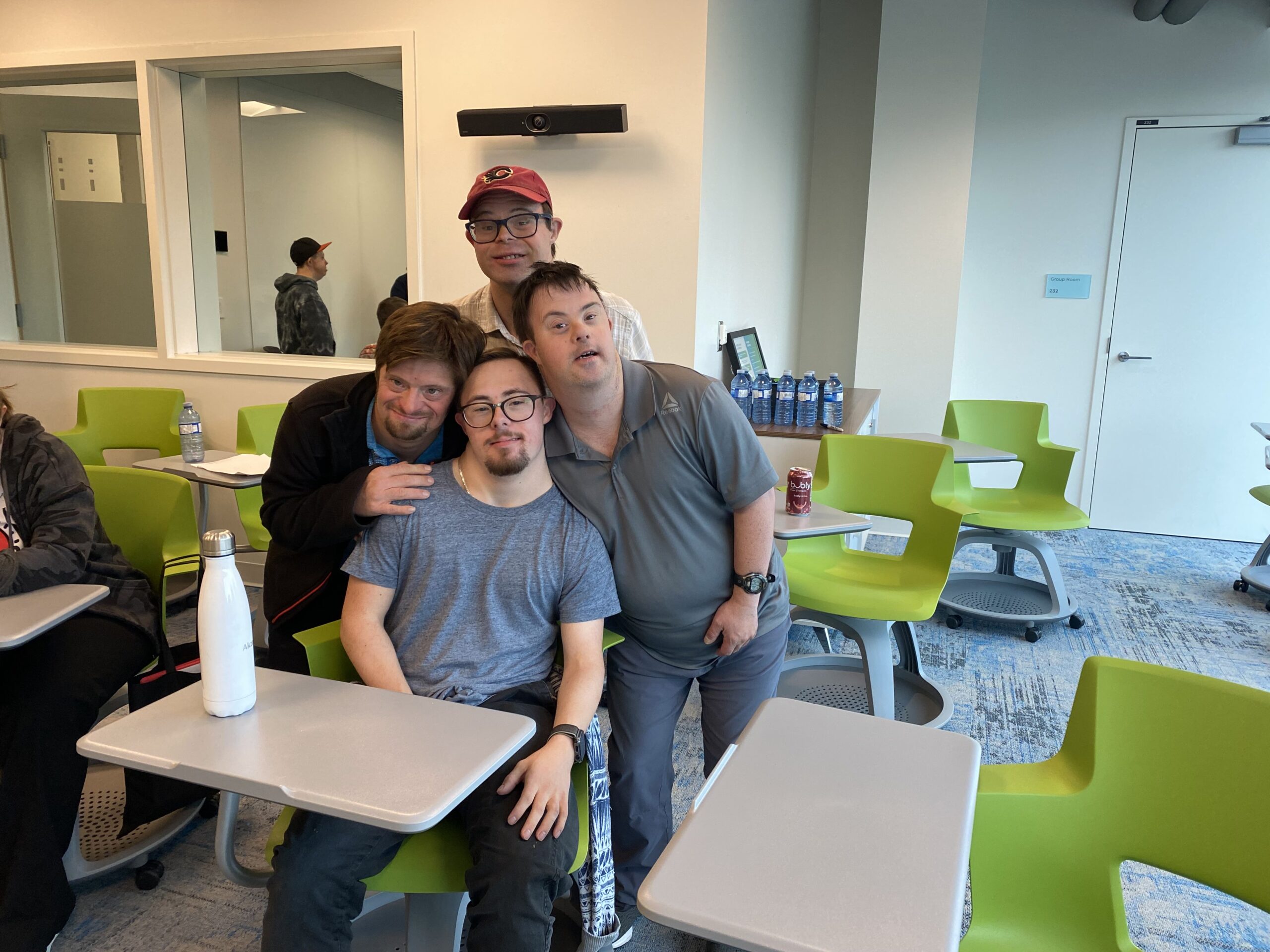Many people do not have a personal connection to a person with Down syndrome. This often contributes to misconceptions about the abilities and lives of adults with Down syndrome, which are as dynamic and varied as anyone elses. Brick by brick, these incorrect assumptions build social barriers that make people with disabilities feel isolated from the “real world”. In reality, both sides are missing out on the possibility of a meaningful and rewarding friendship.
This year for Canadian Down Syndrome Week, we are exploring the unique ways in which social isolation, loneliness, and friendship impact people in our community and how small acts of kindness in our daily lives can help to foster a world where we all feel welcome.
We spoke with CDSS Awareness Leader Paul Sawka about why people should get to know someone with Down syndrome, the importance of social connections, and what makes a true friend.
Get to Know My World
I want to really say “I’m Paul Sawka. Do you want to hear me? Do you want to be able to come to me and talk to me and be with me?”
I’m not going to rest until they can hear me.
Why Aren’t More People Friends with People with Down Syndrome?
People do not really accept the way that I am a very big part of society. I am a big part of the Calgary Ups N’ Downs Board and a part of the Canadian Down Syndrome Society as an Awareness Leader. This is what I am known for my whole working career.
There were times in the past when people could really ignore me because I am not part of their world. Being ignored makes me feel very sad, lonely, and also very empty.

How to Make New Friends
Here are some things I like to talk about:
- Sports you play
- TV shows you watch
- Where you go to school or went to school
- Music you like
- What you like to do for fun
- What your routines are
- Your history and things you’ve done

What Makes a True Friend
Here are a few reasons why I’m a good friend and why I think you should get to know me:
- I’m a good and healthy and strong person
- I’m a good talker
- I’m good at community baseball and curling
- I’m good at computer games on the Nintendo
- I exercise a lot
- I’m good at keeping my house clean and doing laundry
- I’m good at my routines like getting up for work in the morning and living independently
You can say hello to me and talk to me and if you want to really get to know me, well then you can really ask me questions about anything! And I will give you the information about me.

My Friends
I am a friend to many people. Some are from the Calgary Dolphins where I swim, from Special Olympics, or from Ups N’ Downs and PREP. I’m a friend in those organizations. I’m also friends with my roommates.
When I first got my job at Friends Café there were so many friendly workers who did help me a lot. They are friendly to me when I come in to buy my lunch and when I am working with them.
Over the past years, I did have a lot of old friends, but the reason why they had to leave is because they must be moving on with their life. So this made me so very sad when they wanted to leave and to move on. I didn’t mind it, but I really do miss them just because they were gone from me because they were my very best friends. And so that is how and why I had to let them go.
I do have a new roommate who is my friend. Her name is Winnie and she is a very nice girl who is going to be with me for a long time. I also have a new community worker and his name is Adam. We do a lot of things together like going out for lunches and sometimes out for dinners.
By Paul Sawka
Social Connection Resources
Join Us for Canadian Down Syndrome Week

